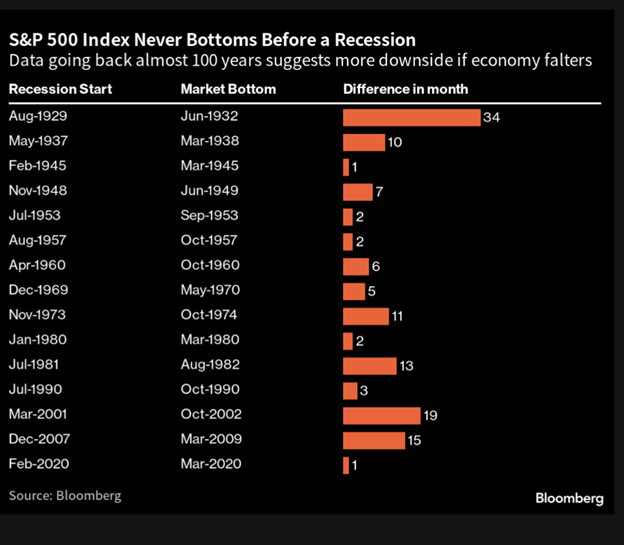A recession in the US is inevitable; probably coming later this year. The increase in interest rates that came from a surge in inflation guarantees that the consumer will reduce spending, probably pushing the economy into recession.
Many analysts and economists are now accepting the inevitability of a new recession which may have started already. There are some hints that consumer demand is already down by quite a bit.
The most important data are from economic reports, such as monthly retail sales. Of course, if the consumer is spending less than last year, after adjustment for inflation, goods manufacturing will be reduced to avoid getting stuck with excess inventory.
It is becoming clear that both US and Canadian consumers are hurting from higher rates, as well as higher food and energy costs. In the GDP, consumers represent 70 percent of the activity for goods and services purchased.
The housing credit problem in the US might not be as severe as in Canada, as most Americans have 30-year mortgages with the rate set for the full term. In Canada, some borrowers have already been forced to adjust to higher rates on renewals, which happen after one to five years, or immediately for variable rate mortgages which were a very popular option when rates were low. Increases of $1,000, $2,000 or more in monthly mortgage payments are becoming the new normal.
In the U.S. consumer credit problems are showing up in retail sales, which are often paid for by borrowing on credit cards or auto loans. Negative growth year-over-year is unusual given that inflation is not subtracted from the headline number. Even so, a large decline in retail sales was reported last Friday, as the headline number fell 0.8%, or almost 6 percent when inflation is factored in. Activity increased in just five of the 13 spending sub-categories in that report.
But the looming credit crunch that has followed the news that several regional banks were unable to stay afloat is the most important trigger for the next recession.

Two lenders, Capital One and Ally, have ceased to offer credit to automobile dealers for a specialized type of finance called “floor plans”. Since many subprime borrowers owe more than their car is worth and are paying 18% interest rates, those lenders feel that the risk has become too great. Anecdotal reports of auto loans exceeding $1,000 per month are becoming frequent.
The loquacious CEO of the largest bank, JP Morgan Chase, chastised an analyst for asking a question about credit. The analyst said, “There’s a narrative out there that the industry could see a credit crunch.” CEO Jamie Dimon snapped, “Yeah, I wouldn’t use the word ‘credit crunch’ if I were you.”
When CEOs lash out with threats it’s often a clear warning that something big is bothering them.
During these uncertain times it is fine to predict a “mild recession”, but you’d better not talk about a possible “credit crunch” if you want to keep your job.
Hilliard MacBeth
The opinions expressed in this report are the opinions of the author and readers should not assume they reflect the opinions or recommendations of Richardson Wealth or its affiliates. Assumptions, opinions and estimates constitute the author's judgment as of the date of this material and are subject to change without notice. We do not warrant the completeness or accuracy of this material, and it should not be relied upon as such. Before acting on any recommendation, you should consider whether it is suitable for your particular circumstances and, if necessary, seek professional advice. Past performance is not indicative of future results. The comments contained herein are general in nature and are not intended to be, nor should be construed to be, legal or tax advice to any particular individual. Accordingly, individuals should consult their own legal or tax advisors for advice with respect to the tax consequences to them, having regard to their own particular circumstances.. Richardson Wealth is a member of Canadian Investor Protection Fund. Richardson Wealth is a trademark by its respective owners used under license by Richardson Wealth.